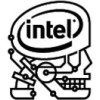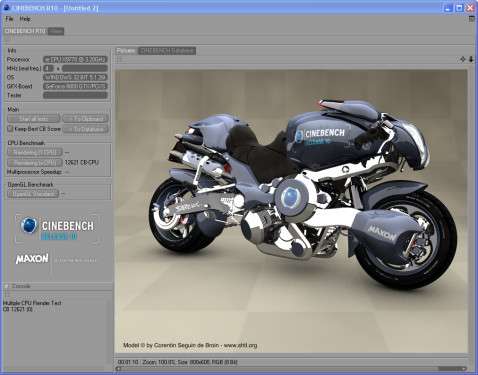- Qualcomm Launches Snapdragon 4 Gen 2 Mobile Platform
- AMD Launches Ryzen PRO 7000 Series Mobile & Desktop Platform
- Intel Launches Sleek Single-Slot Arc Pro A60 Workstation Graphics Card
- NVIDIA Announces Latest Ada Lovelace Additions: GeForce RTX 4060 Ti & RTX 4060
- Maxon Redshift With AMD Radeon GPU Rendering Support Now Available
Intel Skulltrail Enthusiast Platform Preview

Consisting of two Extreme Quad-Core processors, Intel is looking to redefine what we know as “high-end”. Skulltrail is touted as being the “ultimate” enthusiast platform, offering SLI and Crossfire support, huge overclocking abilities and enough sheer power to make the competition weep.
Page 10 – Multi-Media: Cinebench 10, 7-Zip Archiving
Cinebench R10
Like 3DS Max, Cinema 4D is another popular cross-platform 3D graphics application that’s used by new users and experts alike. Its creators, Maxon, are well aware that their users are interested in huge computers to speed up rendering times, which is one reason why they released Cinebench to the public.
Cinebench R10 is based on the Cinema 4D engine the test consists of rendering a high-resolution model of a motorcycle and gives a score at the end. Like most other 3D applications on the market, Cinebench will take advantage of as many cores as you can throw at it.

Like our 3DS Max tests, Cinebench also doesn’t take advantage of all eight cores at the same time, presumably due to the project not requiring that many. Overall frequency will make a huge difference here, not doubling the cores. A combination of the two would provide the ultimate performance boost. While 3DS had a 50% speed increase, Cinebench had enjoyed a 59% boost. Depending on the project, results could vary greatly.
7-Zip Archiving
If you are a power-user and love free software (such as myself), then you no doubt have heard of 7-Zip. Although the application is similar to other compression applications on the market, such as WinZip and WinRAR, 7-Zip is completely free and lacks nothing that you need to effectively archive your documents.
For our test, we take a 4GB folder that’s complete with pictures, music, documents and other random files and compress it to a .7z file using both the LZMA and Bzip2 algorithms.
Bzip2 is my preferred algorithm as it’s faster thanks to multi-threadedness, but the drawback is that the resulting filesize is ~1% larger than what LZMA will export. Of course, whether or not that extra 1% is worth your extra time or not is a personal decision. We are using both algorithms in our tests since both are widely used.

Big gains were not seen here, as the program didn’t seem to want to take advantage of more than five cores at a time, resulting in a 7% increase using Bzip2 and a more noticeable 14% with the much slower LZMA algorithm.
Support our efforts! With ad revenue at an all-time low for written websites, we're relying more than ever on reader support to help us continue putting so much effort into this type of content. You can support us by becoming a Patron, or by using our Amazon shopping affiliate links listed through our articles. Thanks for your support!






